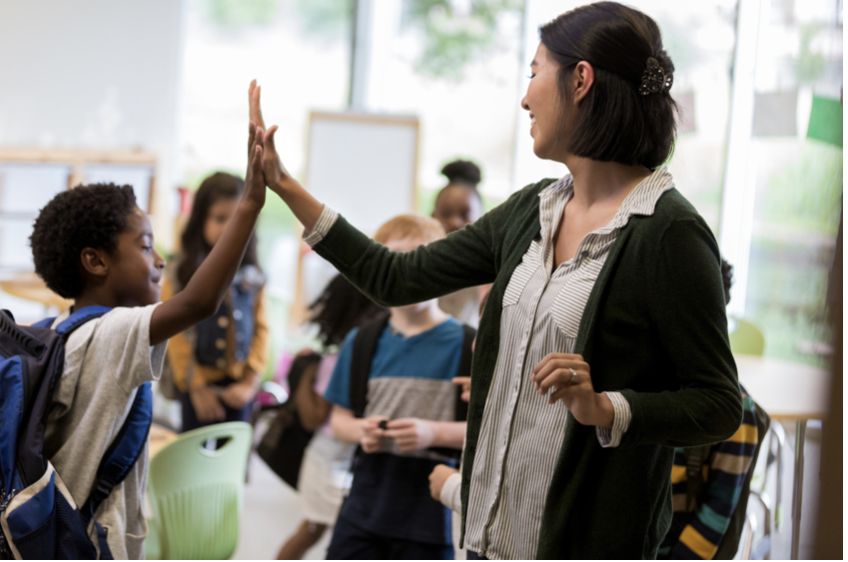Building Bridges: Nurturing Collaboration Between Educators and Guardians for Student Success
Supporting Parent/ Guardian Involvement
Educators and guardians working together can be a powerful tool for supporting students. Not only are parents/ guardians essential team members for students with disabilities, but their involvement can have attendance, social, and behavioral benefits. Here are some practical, proactive strategies for educators to support their involvement and strengthen the home-school relationship:
1. Foster a Strong Home-School Communication
Proactively develop a communication plan by identifying parents preferred mode and frequency of communication. Offer multiple channels for communication, including email, phone calls, text messages, newsletters, or a communication log. Set expectations for when and what information will be communicated home as well as what communication you expect from parents.
2. Embrace Uniqueness
Students experience the greatest advantages when their caregivers and educators establish a mutual understanding and familiarity, along with essential insights into the dynamics of home and school life. Acknowledge, celebrate, and be mindful of differences culture, ethnicity, or language. Provide opportunities for parents and student’s opportunities to share about their culture through open dialogue, learning activities, and celebrations.
3. Involve Parents in Decision-Making:
Include parents in important school decisions, policies, and planning. Provide multiple opportunities for parents to be involved including parent organizations, surveys, and feedback sessions. Parent input and participation can lead to better decision outcomes and increased trust.

4. Focus on Strengths
Sharing strengths and achievements contributes to the development of a positive relationship and facilitates communication during challenging times. Avoid only communicating when issues arise. Researchers have found that it requires three positive experiences to counteract the impact of a single negative experience. All students have strengths and we should celebrate successes big and small. For some children this may be inviting a peer to play, raising their hand, or following their schedule.
5. Provide Resouces
Parents may lack awareness of certain information. Offer parents access to educational resources and opportunities throughout the academic year. Take the initiative to host workshops for parents covering subjects like child development, screen time/technology, and mental health. Collaborate with the school social worker or cultural liaison to ensure that resources catering to the needs of your student population are readily accessible. These resources may encompass both in-school interventions and support as well as external community resources.
6. Be Transparent
When addressing concerns, establish a well-defined problem-solving process centered on solutions. When inviting parents for meetings regarding their child, ensure they have a clear understanding of the meeting’s objectives. Prior to the meetings, distribute agendas and relevant documents to ensure everyone is in sync. During the meeting, encourage both parents and teachers to share their input, but steer discussions back to the agenda to maintain a focus on strengths and solutions.
While there are numerous strategies educators can use to strengthen this relationship, they are not alone in this responsibility. Parents/ guardians, administrators, and others can support educators as well by assuming good intentions and respecting their time and expertise. This shared responsibility not only strengthens the home-school relationship but also contributes to the overall success and well-being of the students involved.
Written by Kalin Schoephoerster, Instructional Designer & Licensed Special Education Teacher
